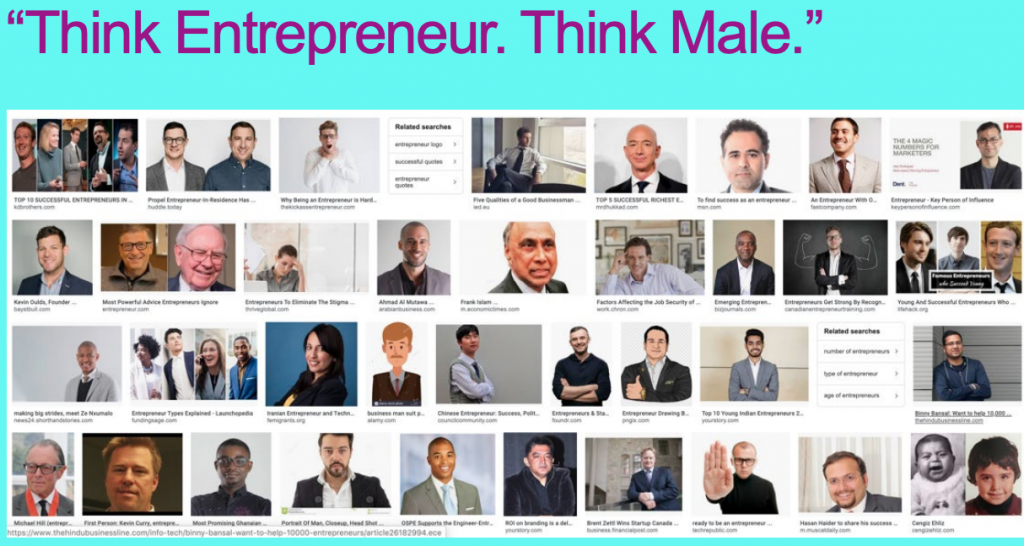Overview of the Problem Space
Introduction
My Major Research Proposal focuses on the Gender Gap in social entrepreneurship and the challenges for women innovators in Toronto’s startup ecosystem.
The majority of studies around this topic only consider males and females. My approach is to explore the gender disparities in the entrepreneurial ecosystem and its intersectionality with the LGBTQ+ and BIPOC communities.
I plan to include entrepreneurs who self-identify as women, immigrants and newcomers, and business owners of small and medium enterprises (SMEs) and self-employed women.
Problem Background
Entrepreneurship is considered as the pursuit of freedom and independence, a manner of disrupting the status quo and as a way to change position in the social order (Rindova, Barry, and Ketchen 2009, 6-9).
Entrepreneurial activities are perceived as masculine occupations. The male entrepreneurial model has been universalized through decades. Some women who wish to become entrepreneurs are required to act under a neutral set of values and attitudes, while men are required to comply with the ‘entrepreneurial’ masculinity standards (Bruni et al., 2004).
Studies show that media representation often reinforces these stereotypes and excludes women, BIPOC communities and gender diversity (WEKH 2020,p.8). Evidence suggests most women do not identify with the term entrepreneurs, because they aspire to be changemakers.
Entrepreneurship in Canada
Canadian population has positive attitudes toward entrepreneurship as a career (GEM Report 2019/2020, p.55):
- 69% of Canadian adults view entrepreneurship as a good career choice.
- 80% of Canadian adults (80%) believe that successful entrepreneurs enjoy high status in Canada.
- 76% Canadian adults believe that entrepreneurial success attracts a high level of media attention in Canada.
Canadian entrepreneurs were ranked 6th in motivation to ‘make a difference in the world’ in the GEM (Global Entrepreneurship Monitor) Report 2019/2020, 2 of 3 Canadian entrepreneurs are motivated to build purpose-driven businesses. Canada is perceived as a leading country for mission-driven and social entrepreneurship (GEM Report 2019/2020, p.3)
Challenges
1. Cultural stereotypes and absence of role models.
2. There is a scale-up problem in the entrepreneurial ecosystem in Canada. Women are currently under-represented in training and mentoring programs across Canada due to gender barriers.
3. Women have limitations when trying to access funding and banking products. The gap is wider for women starting new businesses. This situation not only has a negative impact on business performance but also on a country level development (Unnikrishnan & Blair, 2019)
4. Women starting and sustaining new businesses face challenges while trying to access financial, human, and social capital. Human capital refers to the skills, business knowledge, and experience an entrepreneur needs. Social capital refers accessing to networks that provide information and resources, and formal and informal mentor relationships. There is evidence that social capital can enable female entrepreneurs to increase their aspirations, envision long-term plans, and set more ambitious growth targets for their businesses (Chastain et al., 2021).
5. Immigrant women entrepreneurs face additional barriers: local knowledge, language, discrimination, lack of mentors and networks (WEKH, 2020).

Research Outcome
I’m interested in co-creating a toolkit with entrepreneurs who self-identify as women to help them become the change makers and inclusive leaders they aspire to be.

